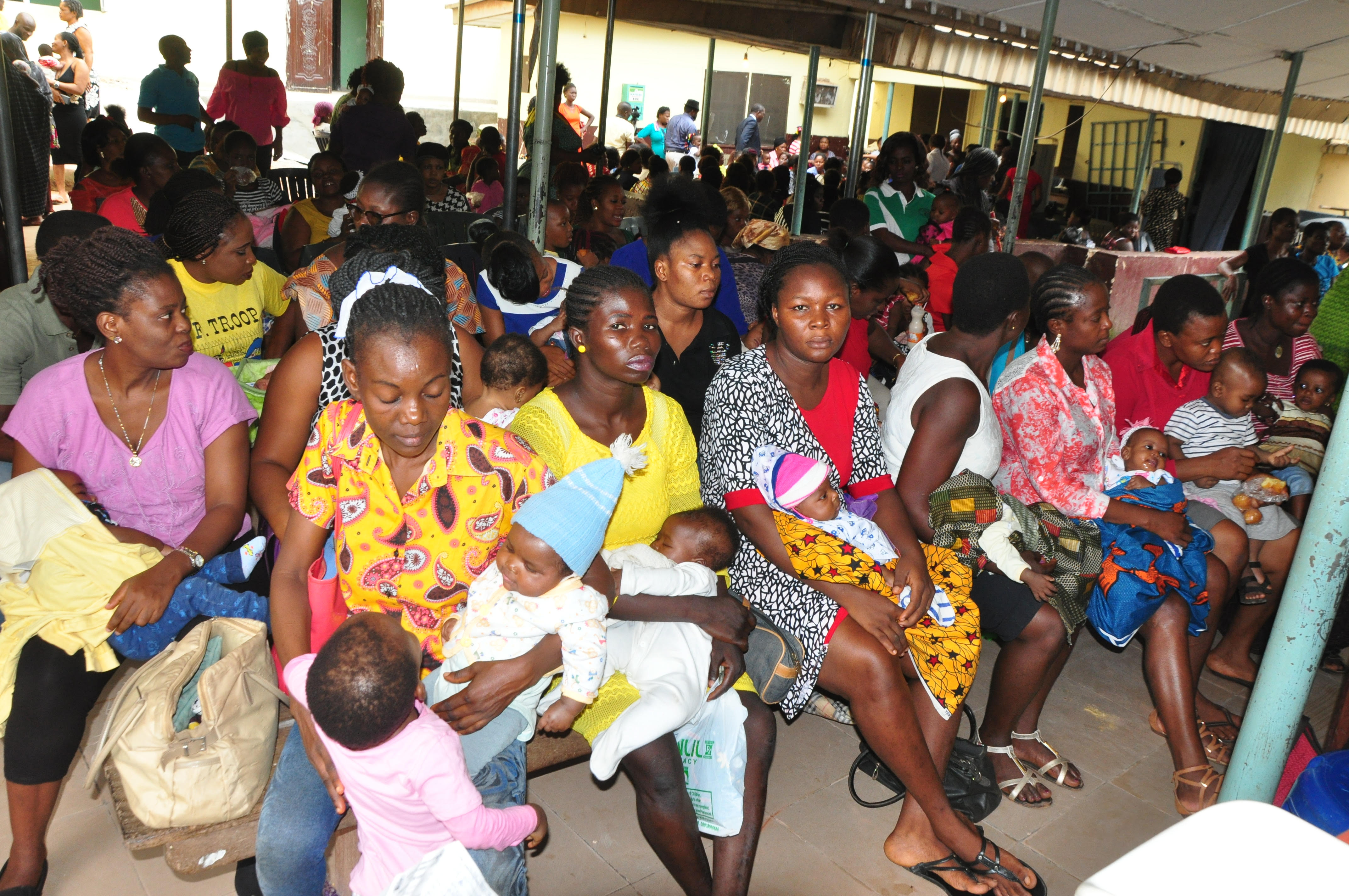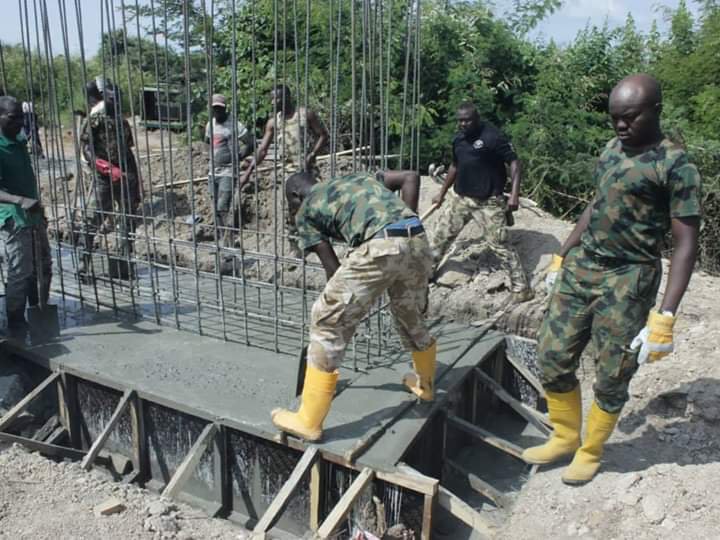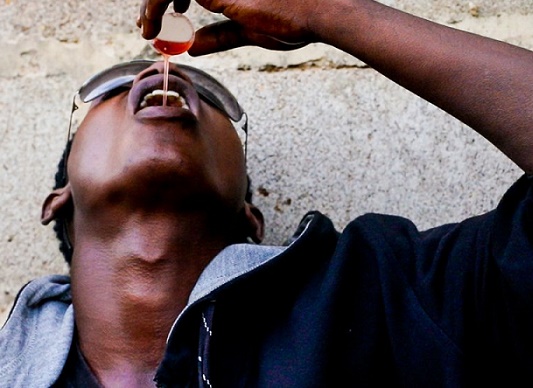Situated in Asata, just at the cusp of a major intersection that connects several middle income and high density neighbourhoods in the Enugu metropolis, there couldn’t have been a more apt location for Poly Clinic, a facility which in its early days was comparable to the famous Massey Street Children’s Hospital in Lagos. Everyday, this secondary health facility witnesses a daily surge for maternity reasons, or generally from patients seeking specialist care for a variety of ailments for which they pay fees subsidized by the state government.
Indeed, as one of the centres where the public can access treatment for the Enugu State’s Free Maternal and Child Health, the pressure is even more so to such extent that on peak days like Mondays and Wednesdays the figure could be between 150 – 180 women and children. That figure is specific to the clinic for pregnant women and children under five years.
For a clinic established decades ago when the population in the state capital had not experienced such exponential growth, it was only a matter of time before facilities became overstretched. Last year, the facility began to experience a makeover conceived to improve its aesthetics and confer on it a look and space that are dignifying for both staff and the patients. But the makeover has not merely been in a structural sense. Besides being re-equipped with diverse medical tools and facilities described as “comparable to the best standard anywhere in the world” by Dr. Okechukwu Ossai, administrator of the state’s Hospital Management Board, the manpower also grew massively with more specialists employed by the state government.
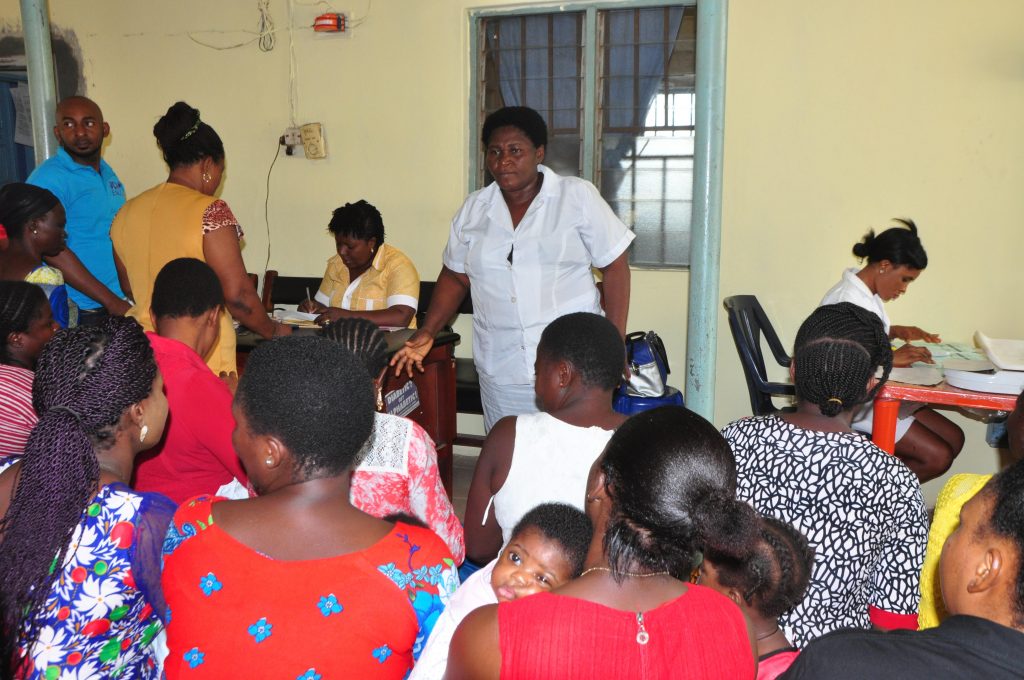
Advertisement
The upgrade culminated in a change of status, from a mere clinic managed by non-specialists that it was to a general hospital with all the specialties and departments in the medical field. “If you step into every room in this hospital you would understand why we’re gathered here,” the permanent secretary of the state’s health ministry, Dr. Ifeanyi Agujiobi, told guests that had gathered to witness the reconstructed facility’s commissioning. He wasn’t exaggerating. From the obstetrics theatre to the general theatre and the emergency ward and laboratory, each of the installed equipment bespoke some cutting edge technology.
A similar makeover is being extended to the 390 primary healthcare facilities and 43 cottage hospitals across the state. The upgrade is consistent with the Governor Ifeanyi Ugwuanyi administration’s desire to improve the quality of healthcare at the primary and secondary levels and expand their capacity to cater to the needs of a growing population.
That desire underpinned the Enugu State government’s determined push towards attaining a universal health coverage status for all residents. Its recent fulfillment of requirements for the takeoff of the Basic Healthcare Provision Fund and payment of the mandatory N100m counterpart fund underscored that commitment. “This will enable all residents in the state to access care under the Universal Health Coverage,” noted shortly before he formally commissioned the facility, also said to be the “busiest general hospital and second busiest public healthcare facility in the state after the Enugu State University Teaching Hospital, Parklane”.
Advertisement
But Ugwuanyi is not simply reveling in the glory of the moment. In anticipation of the manpower demands arising from the expansion and the increased traffic of referrals from the general hospitals, his government recently granted approval to the state’s teaching hospital to absorb one hundred and twenty-five interns of diverse medical background and one hundred and two resident doctors. This is in addition to a sustained employment of consultants in different medical fields.
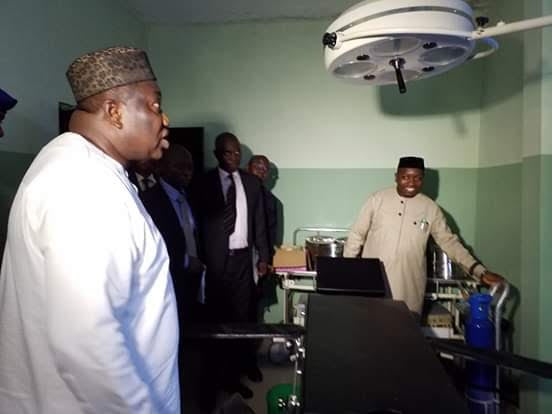
The robust expansion of medical facilities which the state government has carried out, and the requisite staffing it has ensured reflects in Enugu’s impressive doctor-patient ratio. According to a report by the National Bureau of Statistics, Enugu State’s doctor-patient ratio of 1:1,812 is the fourth best in the country, coming only behind the Federal Capital Territory (1 doctor to every 1,267 resident population), Edo State (1:1,416) and Lagos State (1:1,709). Only states such as Oyo (1 doctor to 2,729 patients), Kwara (1 doctor to 2,965) and Rivers (1 doctor to 3,661) posted any figure that could be considered somewhat close to the top three states.
Although Enugu’s figure (indeed, every state in the federation) fell below the desirable doctor-patient ratio of 1 doctor to every 1,000 recommended by the World Health Organisation, the commitment that Ugwuanyi has demonstrated towards enthroning an affordable healthcare with an extensive reach suggests the state can conveniently attain that threshold. His comment at the formal opening of the reconstructed Udi District Hospital (now Udi General Hospital) helped reaffirm this. “We remain committed to our campaign promises and the social contract and unrelenting in our bid to change the narratives in our state health system,” he said.
He had similarly demonstrated that resolve through his government’s doubling of the monthly sum dedicated to funding the state’s free health programme for pregnant women and under-5 children. The approval and implementation of the Consolidated Health Workers Salary Scale (CONHESS) for health workers in the state also highlighted the Ugwuanyi administration’s vision for a reliable public health system. That gesture brought a significant rise in the earnings of nurses, midwives, laboratory scientists, radiographers and a host of other health workers under the Allied Union of Health Workers. Of course, it goes without saying that doctors in Enugu State have long been on the Consolidated Medical Salary Scale (CONMESS).
Advertisement
Poly Clinic’s upgrade means a vast population of residents in the Enugu metropolis no longer have to make any more lengthy commute in search of a prime health facility like they once did. Usually, that entailed going to either the state university’s teaching hospital or the more distant University of Nigeria Teaching Hospital at the outskirts of Enugu. “This is the real democracy dividend,” a young mother cradling an infant says to no one in particular. There are countless others like her who feel this way.
Ani, former editor of ThisDay – The Saturday Newspaper, and Saturday Telegraph, lives in Enugu.
Add a comment

